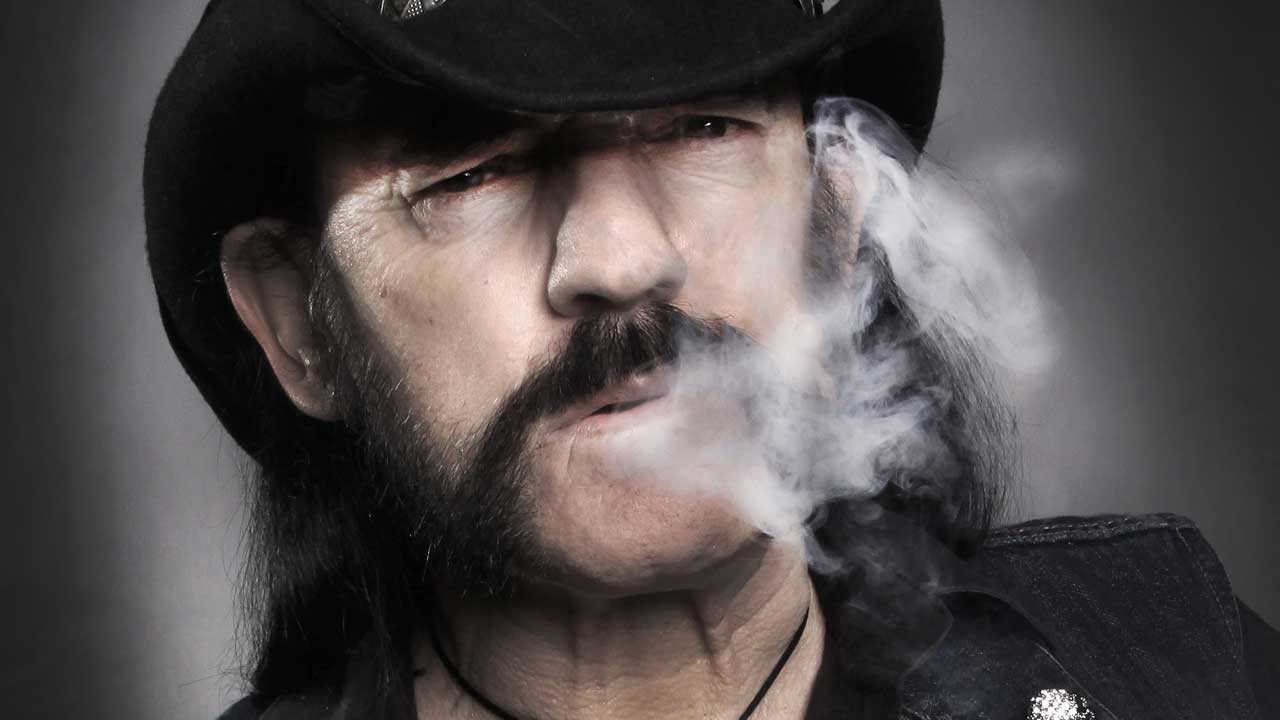Lemmy's golden rules of songwriting, and the three songs he loved the most
Late Motörhead mainman Lemmy on the genius of Abba, what he shares with Jimi Hendrix, the best lyric he ever wrote, and the greatest songs ever written

Back in 2008 Classic Rock interviewed Lemmy about songwriting. The idea was that we'd talk about the songs that rock fans treasured the most. Not the hits, not the songs that'd been played to exhaustion, but the real gems, the lesser-known titles that actual songwriters prized above all others.
And Lemmy? The man who brought us Ace Of Spades and Killed By Death? He wanted to talk about Abba. And then he gave us the names of the three songs he loved more than any other.

Do you remember the first song you ever wrote and how it came about?
The first song I ever wrote was for Hawkwind, it was The Watcher. I did it to get some recognition.
What makes for a good rock song?
Two verses, chorus, solo, verse, chorus, finish. I think all good rock songs should be three minutes at the outside. You should do your best 20-second guitar solo and really make it count. Y’see, with singles it was much more intense, much better than fucking concept albums – those things go on for fucking days.
What is your example of a perfect song?
Sign up below to get the latest from Classic Rock, plus exclusive special offers, direct to your inbox!
I dunno… Twist And Shout, Please Please Me, Dancing Queen, stuff that sticks in your head. Cos even if you hate Abba you’ll be singing that song walking down the road. They’ve got unbelievable hooks. They were obviously doing something right because their records sold all over the world.
Has the process of songwriting got easier, or harder?
It’s easier for me because I’m writing for the same band. You don’t get many outside people asking for my songs.
You once said that when you record an album you write lyrics at the very last minute.
Yeah, that’s how I work. As soon as someone tells me I have to do something I go: “Fuck you!” That’s part of my personality. I don’t like being told what to do. I like working under the knife anyway, it’s always productive for me.
Apart from musical influences, where else do you look for inspiration for your songs?
Spike Milligan is much overlooked as a wordsmith. He was great. I liked him a lot. I dunno. You get your inspiration from words themselves, really. If you find a word, you try and put in a song. I think my greatest hour was in Motörhead, with ‘moving like a parallelogram’. Nobody else has put fucking ‘parallelogram’ in a song.
Which other artists inspire you?
You can get people who inspire you not to do it their way. I can say Frank Sinatra’s an influence, because I swore to God I’d never sing like that. I dunno, let’s see… Who’s good? I thought Donovan was really good in the early 70s. Dylan, of course. He’s very good with the slashing, cutting words. And I thought The Beatles were very good with words. The Stones. The thing with words is to capture a mood. You get two-and-a-half minutes to capture a mood. And something like [the Stones’] Midnight Rambler, you’re immediately in it, you’re in that menace.
Which of your songs are you most proud of?
It’s difficult, cos I’ve written all of Motörhead’s songs. I like [Ozzy Osbourne’s] Mama I’m Coming Home [cowritten by Lemmy]. That’s a good song. Obviously Ace Of Spades because it did so well. You never know what people are going to catch up on. There were a lot of songs as good as Ace Of Spades which didn’t do so well. Also Bomber. I love Bomber.
Do you think people listen to the words of your songs?
A lot of it gets wrongly interpreted. I’ve written anti-war songs for nearly 20 years, right? I got this letter from this kid and he said: “You are obviously a supporter of war and I think that’s terrible.’ [laughs] And then I wrote a song about an SS guard at Auschwitz, and how he felt going to his death, and nobody got it, nobody said a word.
On Motörizer, When The Eagle Screams is an anti-war song.
Yeah. That’s about war being run by businessmen. When the eagle screams – when you squeeze the dollar. That’s what that means.
Is there any set formula for your writing, or is it just hit or miss?
No, I write some songs and then throw them away. It’s just doing the best that you can at the time.
Somebody told me that Hendrix was constantly writing material and then throwing it away.
Yeah, he did. He’s like me, he doesn’t like people looking at him when he’s singing. In the studio he would construct a wall around himself because, you know, you pull stupid faces and do stupid moves. And you don’t want people looking at you cos you’d think they’re laughing at you, cos you would if you were them.
What advice would you give to someone who wanted to start writing songs?
Oh I wouldn’t. I’d just say do it if you feel like it and hopefully it’s good. People will soon tell you if it’s not.
You’re a voracious reader and great lover of words.
Yeah, I’ve got a good vocabulary. ‘Uxorious’ is the new one. It means a worshipper of women. [The dictionary definition is: “excessively fond of one’s wife”, but it’s close enough]. ‘Uxorious’ is really unusual – you wont find that in many rock songs.
Do you care what people think of your lyrics?
It’s nice to hear a compliment, but if they don’t like them I can stand it. You can’t listen to the public or the press because neither of them knows anything about it, really. As far as lyrics go you just hope people like the lyrics as well, since you wrote them.
Which is more important in a rock song, the music or the lyrics?
Well if it’s not a good riff you’ll never listen to the fucking words, right? On the other hand, you get good lyrics on a nothing song. Hopefully it’s a combination of both. That’s what you’re aiming for, innit?
Lemmy's three favourite songs
- The Jimi Hendrix Experience - Love Or Confusion
- The Damned - Neat Neat Neat
- Led Zeppelin - Black Dog
Pete Makowski joined Sounds music weekly aged 15 as a messenger boy, and was soon reviewing albums and doing interviews with his favourite bands. He also wrote for Kerrang!, Soundcheck, Metal Hammer and This Is Rock, and was a press officer for Black Sabbath, Hawkwind, Motörhead, the New York Dolls and more. Sounds Editor Geoff Barton introduced Makowski to photographer Ross Halfin with the words, “You’ll be bad for each other,” creating a partnership that spanned three decades. Halfin and Makowski worked on dozens of articles for Classic Rock in the 00-10s, bringing back stories that crackled with humour and insight. Pete died in November 2021.
- Fraser LewryOnline Editor, Classic Rock

